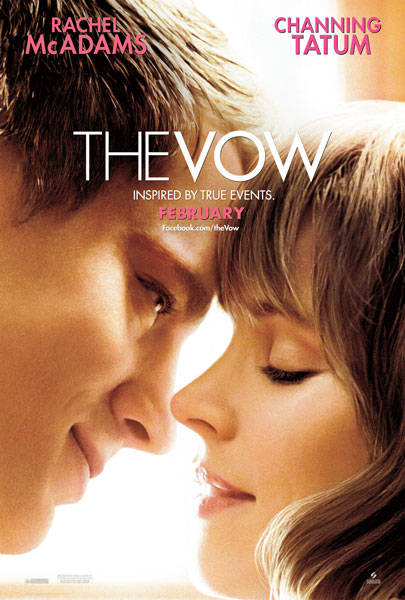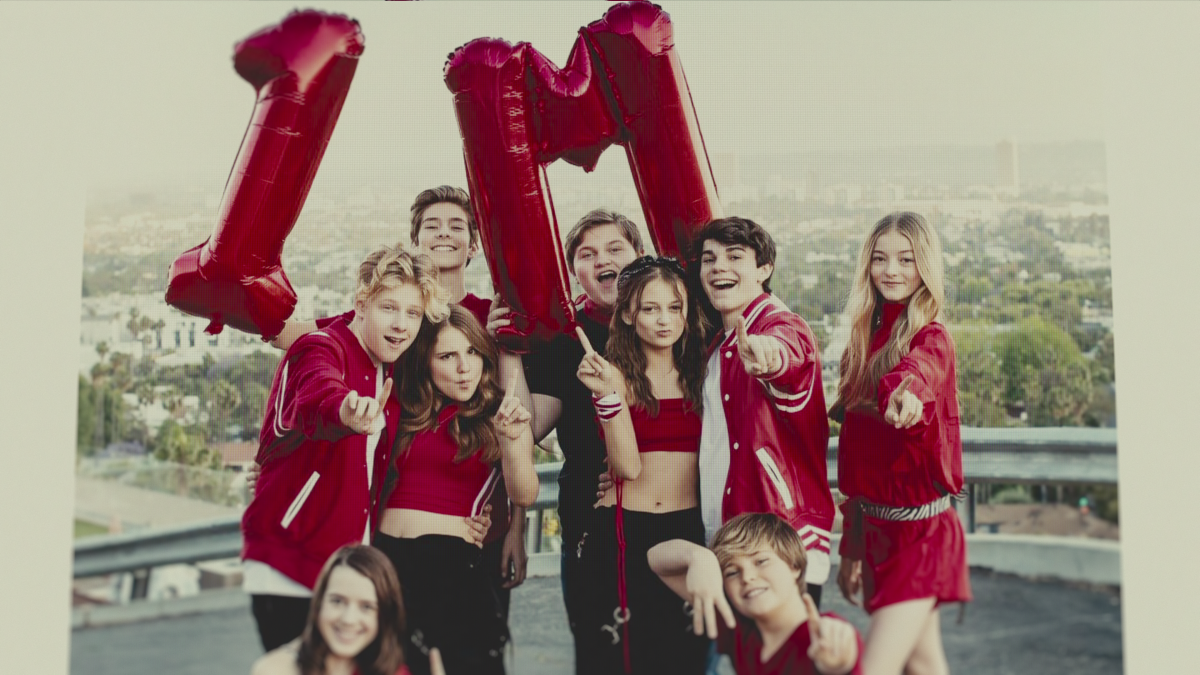
Imagine five years of one’s life, gone in an instant. Half of a decade filled with precious memories obliterated by one moment of impact that can be decided only by fate, destiny, or sheer bad luck. This nightmare seems utterly unrealistic, and why would it not? Things like that cannot simply happen, can they? However— beyond any possible stretch of the imagination— this event did occur, and a modified version of Kim and Krickitt Carpenter’s story came to the silver screen on February 10, 2012.
Unfortunately, the modern adaptation of this couple’s inspirational tale of undying love failed to capture the emotion and enthusiasm it so rightfully deserved. The couple in The Vow, played by heartthrob Channing Tatum and award winning actress Rachel McAdams, live paycheck to paycheck in a small home on the outskirts of a bustling city. Tatum plays a music enthusiast who has recently opened his own recording company, while McAdams assumes the role of an amateur artist teeming with creativity and potential. Virtually nothing can breach the fact that they are totally and irrevocably in love with one another; yet, as one may have guessed (or there would be no movie), something does cause a rift in their perfect relationship that would introduce the ever-so overused cliché that between the two, “nothing will ever be the same.”
A devastating car crash leaves Paige (McAdams) in a coma, clinging to life with each passing hour. After suffering severe head trauma as a result of the accident, Paige is unable to recollect any events from the past five years— a period of time in which she met, dated, and eventually married her husband Leo (Tatum). Describing her reaction when hearing that Leo is her spouse as frightened and confused is certainly an understatement; the word “horrified” seems to suit the realization better. Upon hearing the news, Paige’s estranged family comes to her aide, insisting she return to the life she remembers. Leo, on the other hand, is determined to salvage the unique relationship he shared with Paige before the crash—even if it means he must make his wife fall in love with him all over again.
When the couple returns to their humble abode, Paige is overwhelmed by the drastic change in personality and taste she had acquired since leaving her high-class home five years prior. Paige’s preppy fashion sense as well as her structured lifestyle is now nonexistent— earthy-crunchy décor and a cluttered art studio characterize her new life with Leo. Almost disgusted by her decision to adopt such a free-spirited and simple standard of living, Paige chooses to clear her head by moving back to her parents’ house to help prepare for her sister’s wedding.
However, no romance film would be complete without a love triangle, right? Almost halfway into the movie, Paige’s ex-fiancé named Jeremy is thrown into the mix for the sole purpose of augmenting the drama of the film’s predictable plot. Because she still has feelings for Jeremy, it proves difficult for her to decide which man she wants to spend the rest of her life with—the successful, yet uptight businessman with a bad haircut, or the handsome, hopeless romantic with the charming and rugged disposition. Who will she pick? Oh, the suspense!
Obviously, her well-to-do parents will opt to welcome Jeremy into the family with open arms, getting rid of down-on-his-luck Leo as soon as possible; for he certainly will never be good enough for their daughter! Alas, Paige is left to make the final decision— which fluctuates often, seeing as though the final choice is left to the whim of her troubled heart. Meanwhile, Leo will stop at nothing to sway her decision in his favor.
The ending, as well as all 104 minutes of the movie, was simply predictable—the kind of conclusion in which the events that occur attempt to make you believe the two lovers will go their separate ways and never cross paths again; yet what is a love story without a happily ever after?
The performances from both stars were disappointingly lackluster. Channing Tatum’s seemingly monotone voice never changed over the coarse of the entire movie. His words lacked emotion, falling flat as soon as they were uttered. McAdams had the opposite predicament, yet her lines produced a similar result. With almost a superfluous amount of emotion, each word seemed so rehearsed and extremely unnatural. After a phenomenal performance as Allie in Nicholas Sparks’ The Notebook, McAdams disappointed. Her character, Paige, lacked the vitality and charisma of her previous roles that so many have come to expect.
Sure, the movie was adorable in some respects— a few lines were delivered perfectly, Leo’s flashbacks of his and Paige’s relationship (which were sporadically placed throughout the story) were quirky and amusing, and Leo’s endless pursuit to preserve this “once-in-a-lifetime love” was truly inspirational. What girl wouldn’t kill for such an attractive guy with as much determination to fight for their attention as Tatum’s character?
Yet, in spite of the hype and attention this movie accumulated, the film did not live up to the expectations set by its viewers. After classics like A Walk to Remember, The Titanic, The Notebook, and other renown love stories held in high regard today, The Vow failed to match the passion and romance deftly woven into its predecessors. The plot lacked substance, and the actors were not compatible. Much like the moment of impact that left Paige without memory, the movie left viewers forgetting why they went to see The Vow in the first place.









